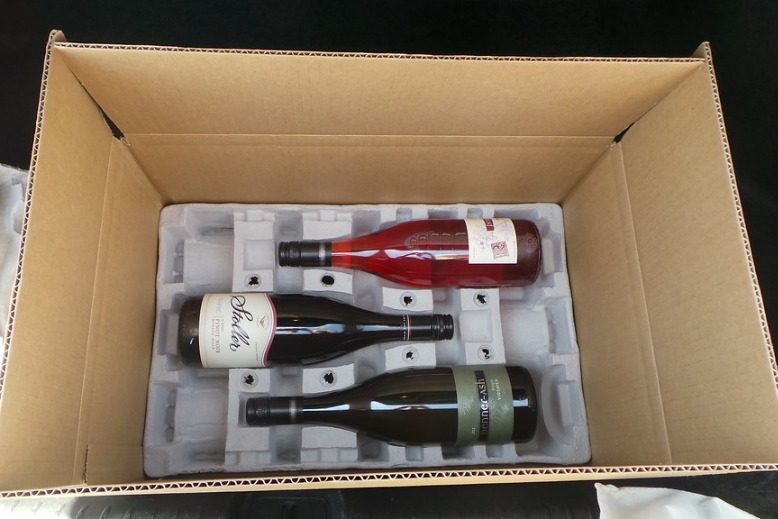
If you have ever tried to order a case, bottle or even just a sample of wine straight to your door in New Jersey, you might already know the state has strict rules on the types of wineries allowed to ship wine direct-to-consumer (DTC).
In the Garden State, DTC shipments are restricted based on the production volume of the winery. Only wineries that produce less than 250,000 gallons of wine per year, roughly 106,000 cases (or more than 1 million bottles), can ship directly to New Jerseyans’ doorsteps. Any wineries with production more than that are blocked from doing so.
Grassroots organization Free the Grapes is trying to change that.
The group, focused on expanding wine consumers’ options nationwide, has introduced two bills in Trenton in an effort to lift the production cap.
“The number makes it sounds like these are huge wineries, but they aren’t. Really, it’s a medium-sized winery,” says Jeremy Benson, the executive director of Free the Grapes. While many wineries in New Jersey are under that number, some are approaching the production amount. And if they reach it, they wouldn’t be able to ship wine to customers within their own state. “The fact is, consumers should have the choice to be able to purchase from a winery, regardless of its production size. That is blatantly discriminatory against a winery that has had some success,” Benson says.
Free the Grapes’ main mission is to ensure wine lovers across the United States have access to their choice in wine, without bans or restrictions. And they have been largely successful. When Free the Grapes started in 1998, there were only 17 states that allowed for a U.S. winery to ship directly to consumers. Now, 45 states allow for some sort of DTC wine shipment.
The restriction in New Jersey, originally put in place to support wine wholesalers by reducing DTC shipment, is especially timely in light of the pandemic.
Due largely to Covid-19, 2020 saw huge spikes in direct shipments of wine. “Covid has accelerated many trends, and direct shipment and delivery has really accelerated five years in the last few months,” Benson says.
For example, the first half of this year saw winery-to-consumer shipments increase nationally by nearly 29 percent compared to the same period in 2019, according to Wines Vines Analytics and Sovos ShipCompliant, two organizations that produce data on DTC wine shipping.
In New Jersey, however, the shipping volume rose by just nine percent. And while the Garden State is the sixth largest wine-consuming state, it only ranked 17th in wine-to-consumer shipment value—far behind other, smaller states, according to Free the Grapes.
And it seems New Jerseyans are ready for that to change. Through the Free The Grapes webpage, consumers can write a letter to their legislators about wine-law issues that concern them. In the month of August alone, 1,577 such letters were sent from the site to NJ legislators. “That’s a huge number. We typically only get a couple hundred. To have almost 1,600 in one month in one state, it really says something about the interest,” Benson says. “It’s just indicative of the fact that these consumers are ready for this convenience.”
In addition to limiting the consumer, Benson says that the production cap, which exists only in New Jersey and Ohio, has caused the state to lose out possible income. “The state is losing, according to Rutgers University, about $4 million in terms of lost license fees, as well as excise taxes and sales taxes, which the wineries are willing to pay.”
As far as local wineries opinion on the bills, the Garden State Wine Growers Association is neutral—a view that Benson says is typical of wineries. “I’ve been working on this for a long time and in general, it is pretty rare to see opposition from wineries. In a lot of cases, they have a pretty good local market, and generally say, ‘bring on the competition, it doesn’t matter,’” he says.
Those who oppose repealing the law are more likely to be wholesalers or retailers, who act as the in-between from wineries to consumers. However, Benson says the assumption that directly shipping to a consumer negatively impacts wholesalers is incorrect. “There was a study in Maryland the year after the state allowed for direct shipment to consumers, and wholesale and retail sales actually went up the year it was introduced,” he says.
As for an exact timeline for when the law may change in New Jersey, Benson can’t say. “We tried in the last session, unsuccessfully, even though there was a lot of consumer support, and we had a lot of sponsors.” Now, a hearing on the measure is set for 9:15 am on October 8. This time, Benson hopes the legislators will listen to what consumers are asking for. “In the case in New Jersey, it’s time to set this right. That’s really the gist of this. It’s overdue,” he says.
Visit Free the Grapes website for more information and to follow along on the progress of the bills.
